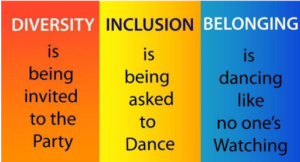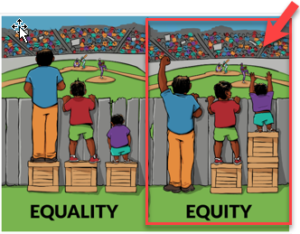
The purpose of this policy is to express Canadian International Freight Forwarders Association (“CIFFA”)’s beliefs, values and commitment regarding equity, diversity, and inclusion. It aims to ensure that CIFFA’s voice on the subject of equity, diversity and inclusion is consistent, and the values related to equity, diversity and inclusion are clear.
The creation of an Association that is equitable, diverse, inclusive, respectful and protects the human rights of all employees, members, and guests, including those groups protected under Canadian federal and provincial human rights legislation, requires the work of every member of CIFFA, including, employees.
This policy applies to all members of the Association, employees and consultants, agents, representatives, contractors, and contract workers when they act on behalf of CIFFA and where applicable to visitors and guests. It is intended to complement local statutory provisions.
One or a series of action(s) or behaviour(s) related to one or more of the prohibited grounds, as defined by the human rights legislation (“the Codes”), that results in unfavourable or adverse treatment which negatively affects or could negatively affect the Association member, employee, or guest.
Means recognizing that we are all unique and bring with us varied experiences, perspectives and approaches to the workplace.
Means treating individuals and groups fairly, not necessarily equally or the same; recognizing that there are barriers to employment, participation, access and inclusion in the forwarding industry. The principle of equity acknowledges that systemic barriers may exist or exists, and action is needed to address historical imbalances.
Is the set of practices and behaviours within the Association, or among individuals, which enables members, employees, and guests to understand, communicate, and effectively interact with people across differences, real or perceived.
Means intentionally creating a sense of belonging where all members, employees and guests are recognized and valued for their uniqueness; and collectively promoting an environment where individuals can be their authentic selves.
Means understanding that any individual has more than one identity, and that their identities create unique experiences.
A: 1999 - R. v. Gladue – Supreme Court of Canada held that alternatives to incarceration and the unique circumstances of indigenous peoples must be considered during sentencing. 2020 – Fraser v. Canada (AG) – Supreme Court of Canada recognized that equality under the Canadian Charter of Rights and Freedoms can be violated if a law (which appeared to treat everyone identically and neutrally) may produce inequity. Adverse impact discrimination occurs when a seemingly neutral law (or policy) has a disproportionate impact on members of groups protected on the basis of enumerated or analogous grounds. [RCMP members who took maternity leave and worked part time were denied full pension credits. Claimants argued that the pension consequences of job-sharing had a discriminatory impact on women contrary to the Charter of Rights and Freedoms. The court agreed.) 2021 – R. v. Morris – Ontario Court of Appeal held that anti-Black racism is a real phenomenon in Canadian society and sentencing judges can take judicial notice without the need for evidence.
A: The following factors should be considered with an intersectional approach to analysis of discrimination. In an intersectional approach, each of the factors are treated separately, but are considered together to recognize that an individual’s experiences are based on multiple overlapping identities and contextual considerations. The following factors influence equity, diversity and inclusion: Ethnicity, Religion, Age, Disability, Sex, Gender, Geography, Culture, Income, Social orientation, Education, and Race.
A:
A: Education is the primary tool to promote equity diversion and inclusion. Secondary tools having the apparatus to investigate claims and incidents of the breach of EDI, and the tools necessary to enforce policies.
A: Diversity is being invited to the party.
Inclusion is being asked to dance.
Belonging is dancing like no one’s watching.

A: To implement equity may require individuals to be treated differently. For example, accommodation, under the legislation, may be necessary for a person with a disability to be treated fairly. Treating a person with a disability the same as a person without a disability may result in discrimination. See the R. v. Gladue decision below.

A: The everyday verbal, nonverbal, and environmental slights, snubs, or insults, whether intentional or unintentional, which communicate hostile, derogatory, or negative messages to target persons based solely upon their marginalized group membership.
A: No. Affirmative action is a mandate that government and employees take positive steps (affirmative action) to ensure the recruitment and advancement of qualified minorities, women, persons with disabilities. Equal employment opportunity is employment practices that ensure non discrimination, fairness, and equity in the workplace. Diversity is much more.